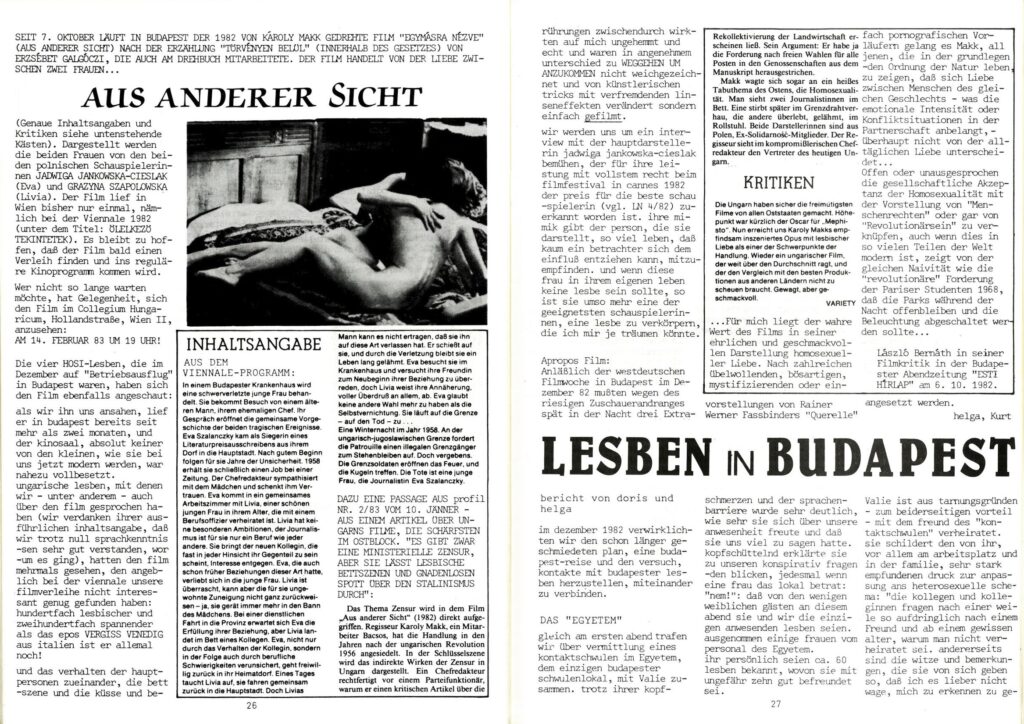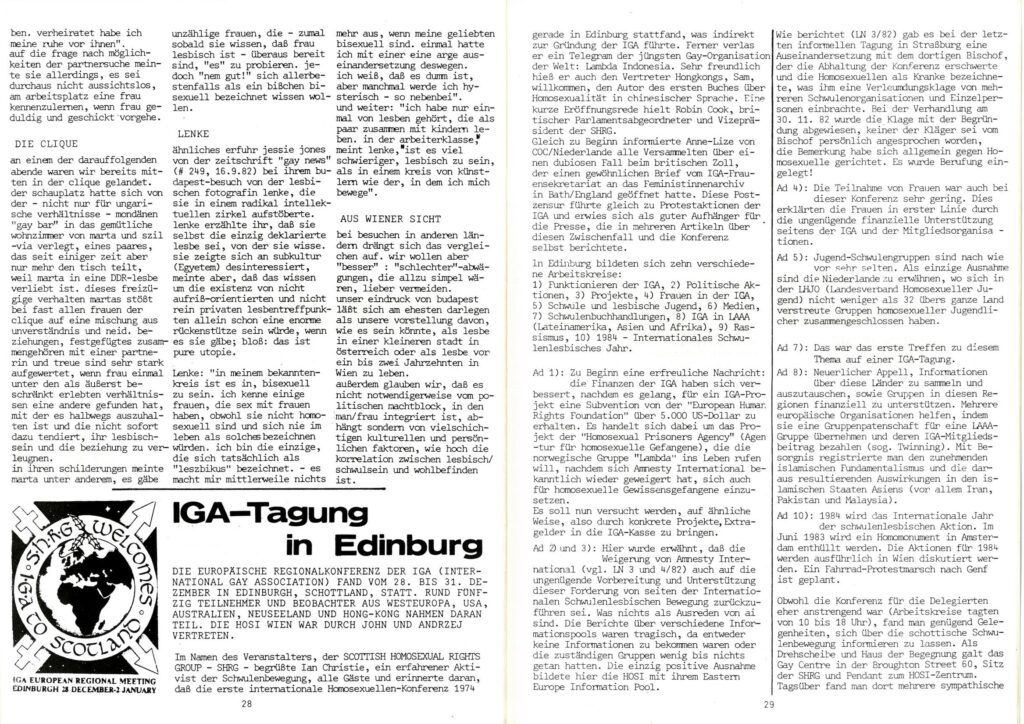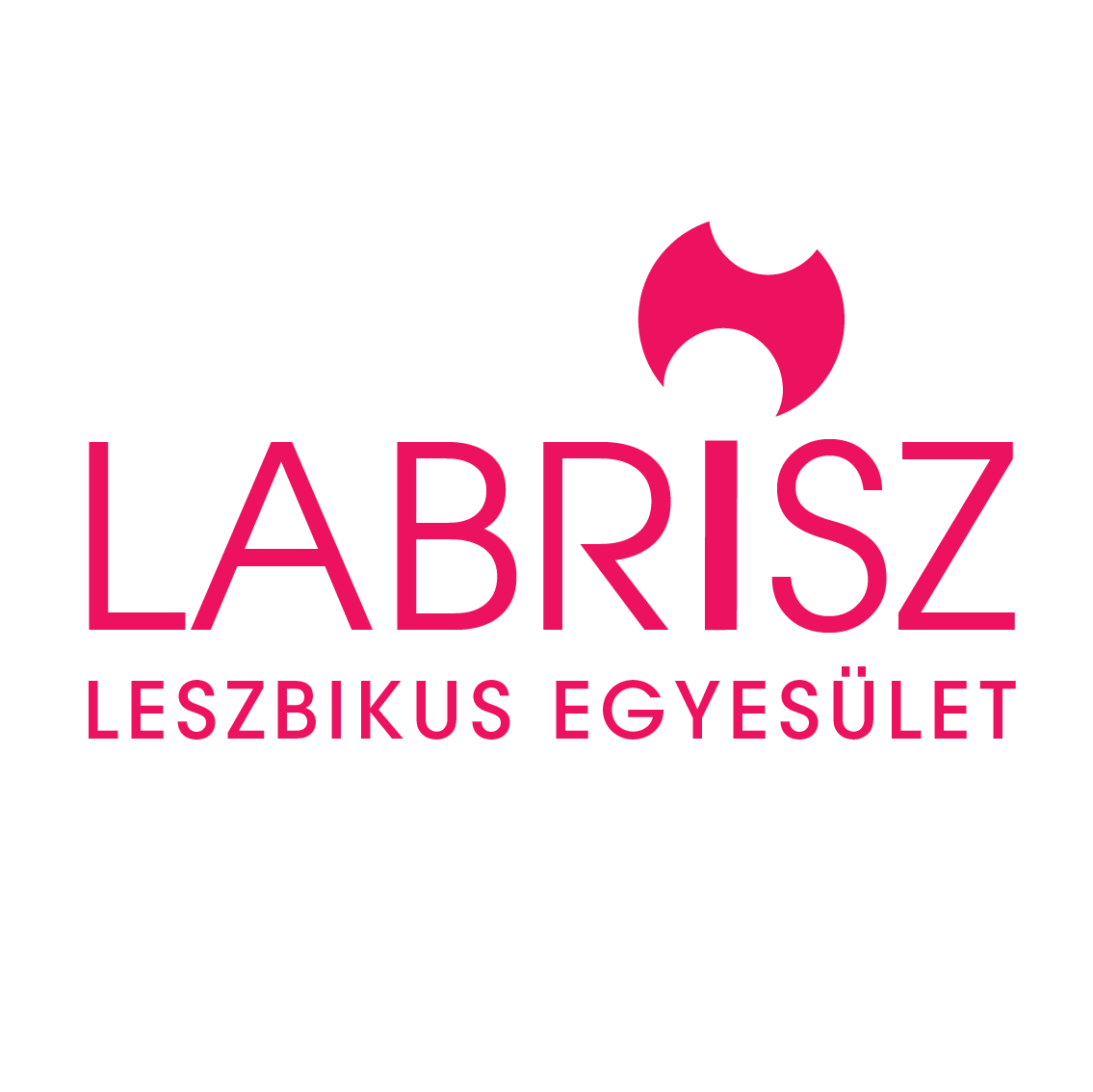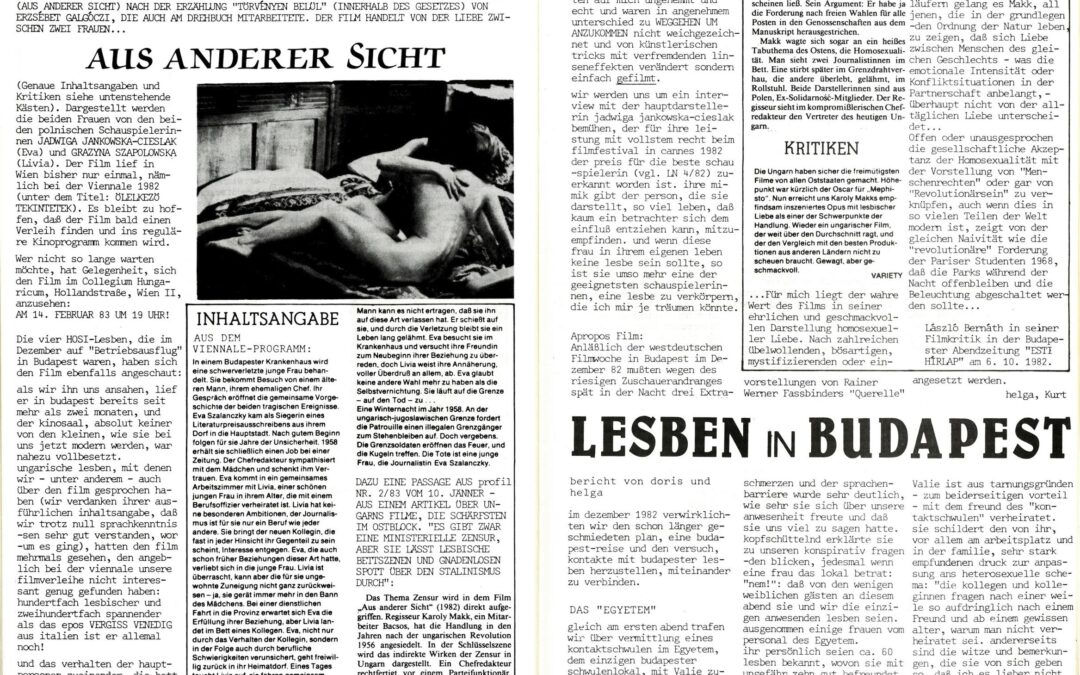The 1983/1 issue of Lambda Nachrichten (the quarterly magazine of the Austrian LGBT association HOSI Wien, published since 1979) featured a report on the December 1982 visit to Budapest by four lesbian activists from the association. The Austrian lesbians talked to Vali, Márta, and Szilvia, and quoted from an interview with Lenke Szilágyi from a few months earlier. They also watched the film Egymásra nézve (Another Way).
Lesbians in Budapest
Report by Doris and Helga
In December 1982, we realized our long-cherished plan: we combined our trip to Budapest with an attempt to establish contact with Budapest lesbians.
The "Egyetem"
Through a gay acquaintance, we met Vali on our first evening at Café Egyetem (University Café), Budapest's only gay bar. Despite her headache and language barriers, it was clear that she was very happy to see us and had a lot to say. She shook her head in response to our conspiratorial glances when a woman entered the bar: "No!" That evening, she and we were the only lesbians among the few female guests. Plus a few female employees of the University. She knows about sixty lesbians personally, ten of whom are good friends. For the sake of disguise—in the interests of both parties—Vali married a friend of our gay acquaintance. She describes how she felt a very strong pressure to conform to heterosexual norms, especially at work and in her family: "After a while, my colleagues started asking intrusive questions about my boyfriend and, once I reached a certain age, about why I wasn't married. On top of that, they made jokes and comments that made me afraid to reveal myself. If you're married, they leave you alone."
However, when asked about the possibilities of finding a partner, she replied that it is not at all hopeless to meet a woman at work if we are patient and skillful enough.
The click
The following evening, we found ourselves in the middle of the clique. The venue was Márta and Szilvia's cozy living room, after the sophisticated "gay bar" (not only by Hungarian standards). They are a couple who have been sharing a table for some time now, because Márta is in love with an East German lesbian. Márta's free sexuality provokes incomprehension and envy in almost all the women in the group. Relationships, solid commitment to a partner, and fidelity are highly valued when a woman finally finds someone she can tolerate to some extent in extremely limited circumstances, and who does not immediately want to deny her lesbianism and the relationship.
Among other things, Márta claimed that there are countless women who—especially after finding out that the other woman is a lesbian—are very willing to "try it out." But "no way!" Even in the best case scenario, they only want to consider themselves a little bit bisexual.
Lenke
Jessie Jones, a journalist for Gay News magazine (issue 249, September 16, 1982), heard similar stories during her visit to Budapest from Lenke, a lesbian photographer whom she met in a radical intellectual circle. Lenke said that she was the only openly lesbian person she knew. She is not interested in the subculture (University), but believes that the existence of lesbian meeting places that are not oriented towards dating and are not purely private would in itself be a huge support; however, this is mere utopia.
Lenke: “It’s fashionable among my friends to be bisexual. I know a few women who have sex with women, even though they’re not homosexual, and we would never call them that. In fact, I’m the only one who actually calls herself a ‘lesbian’. Nowadays, it doesn’t bother me if my lovers are bisexual. I once had a serious argument about this. I know it's silly, but sometimes I get hysterical—just as an aside." And: "I've only heard of lesbians once. Those who live together as a couple with children. It's much harder to be a lesbian in the working class than in an artistic community like the one I'm in."
From a Viennese perspective
When visiting other countries, comparisons are almost inevitable. However, we prefer to avoid assessments such as "better" or "worse," which would oversimplify the situation.
Our impression of Budapest could best be described as being like living as lesbians in a small Austrian town, or like living in Vienna a decade or two ago.
Furthermore, we believe that the extent of the correlation between lesbianism/homosexuality and personal well-being does not necessarily depend on which political power bloc a person belongs to, but is shaped by a variety of cultural and personal factors.
We would like to thank Katrin Kremmler for her help with the translation of the German text.



